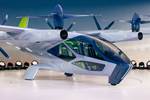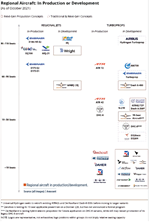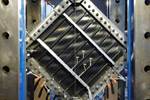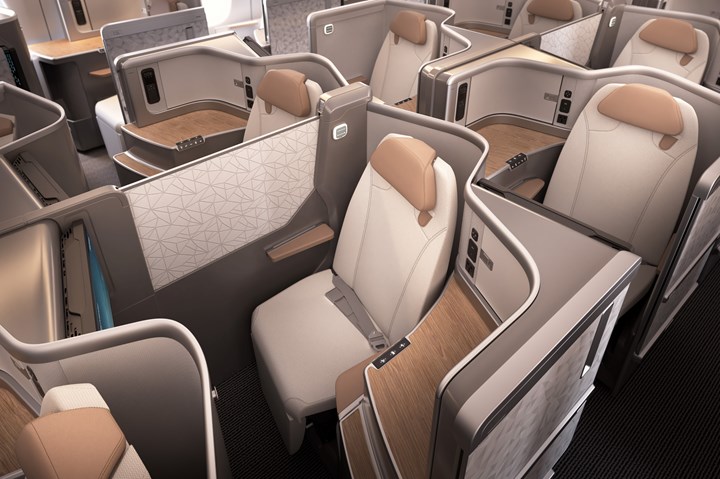Eve selects composite seats from Recaro Aircraft for 2026 eVTOL
The delivery, to include 75,000 GFRP seats, marks Recaro’s entry into the AAM market.
The CL6720 business class seat shown here is a prime example of Recaro’s expertise in fiber-reinforced composite seating. The CL6720 is considered to be the lightest seat in its class (note: this is not the seat to be produced for Eve). Source | Recaro Aircraft Seating
Recaro Aircraft Seating (Schwaebisch Hall, Germany) ventures into the world of advanced air mobility (AAM) with its selection by Eve Air Mobility (São José dos Campos, Brazil) to design, certify and produce seats for the company’s electric vertical takeoff and landing (eVTOL) aircraft.
AAM aircraft require a focused approach for lightweight design, especially during the development phase. To set an industry benchmark for minimal seat weight for both pilot and passenger seat variants, the Recaro team has opted for a fiber-reinforced bucket design using high-quality glass fibers embedded in an epoxy matrix. Recaro says that such a design enables a high degree of freedom for the industrial designers to shape the seat with the best possible ergonomics in mind, while keeping the weight of the seat to a minimum.
Recaro is set to deliver a total of 75,000 seats, organized in shipsets of five seats each, with deliveries commencing in the first quarter of 2025.
“The success of a project like this is only possible when there is a strong collaboration, just as there is between Recaro and Eve Air Mobility,” Dr. Mark Hiller, CEO of Recaro Aircraft Seating and Recaro Holding, notes. “EVTOL aircraft represent an exciting new chapter for air transport, and I am confident that Recaro is well-equipped to navigate it, with our strengths in lightweight design, quality and ergonomic.”
Recaro is one of several suppliers Eve has recently chosen for its aircraft production, FACC AG being another for the fabrication of lightweight horizontal and vertical tail, aileron, and rudder and elevator.
“We are building a strong and reputable list of qualified suppliers for our eVTOL aircraft,” Johann Bordais, CEO of Eve Air Mobility, emphasizes. “We have been very deliberate in establishing a long-term working relationship with each of our suppliers. Each agreement covers the aircraft’s life cycle including prototype, production and aftermarket service and operational support.”
Eve’s eVTOL will be piloted at launch, but will evolve toward uncrewed operations in the future. It is scheduled to enter into service in 2026.
Related Content
-
Aviation-specific battery system uses advanced composites to address electric, hybrid flight
BOLDair’s composite enclosure, compression structures and thermal runaway management enables high-performance electric energy storage.
-
Understanding vacuum bagging layers in production, repair
Recognizing the functions of each layer in a vacuum bag schedule can help users discover what vacuum bag schedules work best for their application.
-
Al Seer Marine, Abu Dhabi Maritime unveil world’s largest 3D-printed boat
Holding the new Guinness World Record at 11.98 meters, the 3D-printed composite water taxi used a CEAD Flexbot to print two hulls in less than 12 days.

















